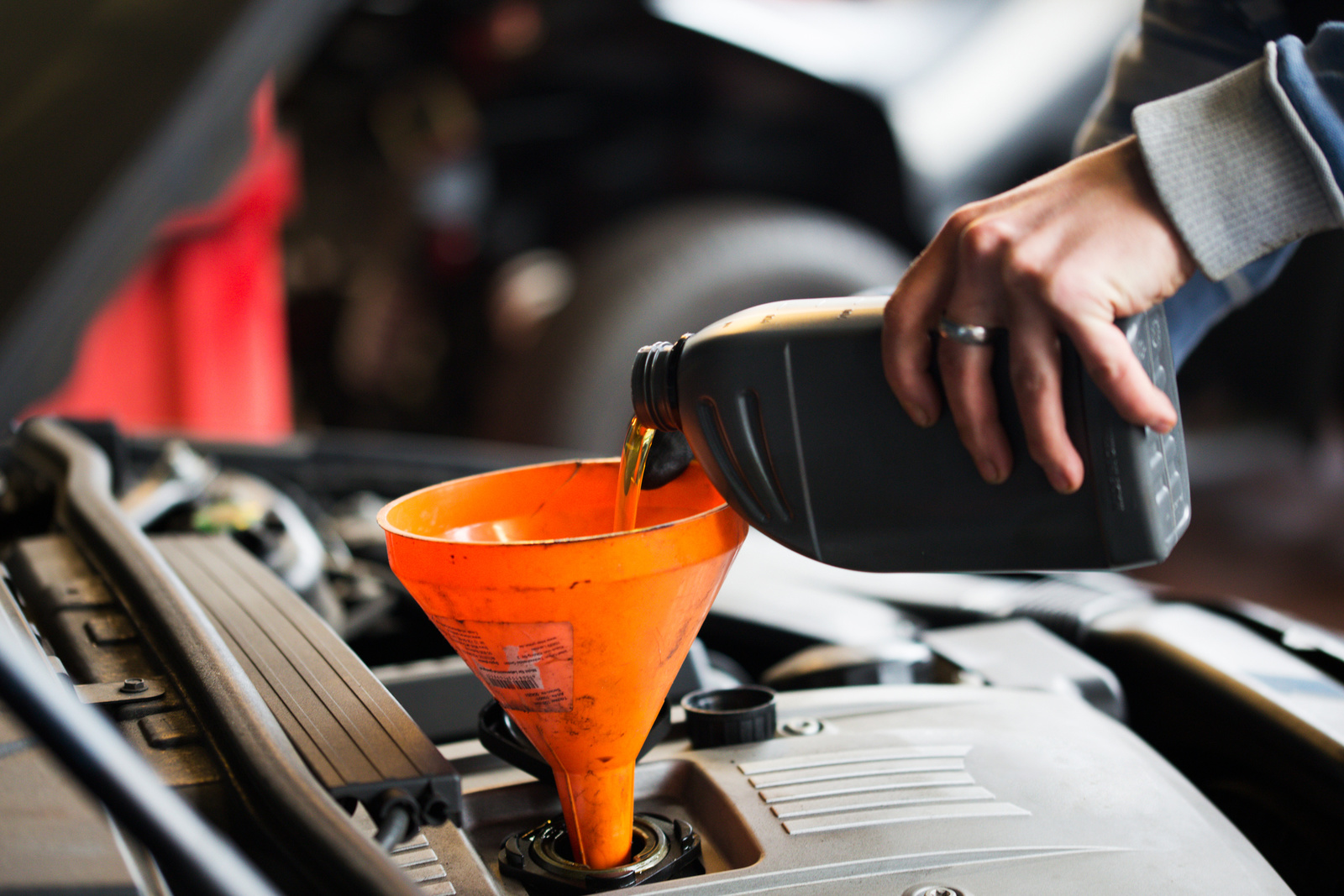All Categories
Featured
Your vehicle's engine is a complex system that depends on numerous interconnected parts to work properly. Among one of the most important components that makes certain everything runs smoothly is the timing belt. Usually ignored, the timing belt plays a vital role in maintaining your engine integrated and operating at peak efficiency. Neglecting its upkeep or replacement can cause severe, costly damage to your engine. In this write-up, we'll discover the value of timing belt substitute and why it's important to your engine's long life.
What Is a Timing Belt and Just How Does It Work? The timing belt is a rubber or strengthened composite belt that connects the crankshaft to the camshaft in your engine. These 2 parts should operate in sync for the engine's shutoffs to close and open at the correct times during the burning cycle. The timing belt controls this synchronization, guaranteeing that the valves and pistons do not collide.
![]()
As your engine runs, the timing belt continually transfers to maintain these parts lined up. With time, the belt undergoes damage from warm, engine, and rubbing vibrations. If it breaks or comes to be loose, the crankshaft and camshaft will no more be integrated, causing engine misfires, loss of power, or, in the most awful case, extreme engine damages.
Why Timing Belt Replacement Is Critical. Avoids Serious Engine Damage: If the timing belt breaks while the engine is running, the pistons can hit the shutoffs, causing bent valves, damaged pistons, and even a split engine block. This type of damages usually requires considerable and costly repair work or an entire engine substitute. Replacing the timing belt prior to it falls short is a affordable and straightforward means to prevent such tragic consequences.
![]()
Ensures Smooth Engine Procedure: A properly maintained timing belt assists maintain your engine running efficiently by maintaining the correct synchronization between the crankshaft and camshaft. When the timing belt is broken or stretched, the timing of the engine's shutoffs may be off, creating engine misfires, rough idling, or delaying. Replacing the timing belt at the recommended interval makes sure that the engine operates as it was made to, maximizing performance and effectiveness.
Saves You Cash: Although replacing the timing belt may appear like a significant upfront cost, it's much much more inexpensive than the expense of fixing or changing a damaged engine. The labor involved in changing the timing belt is a lot less costly than fixing engine elements that are damaged due to a broken belt. Regular timing belt substitute can conserve you hundreds of dollars in the future by preventing engine failing and pricey repair work.
Prevents Unforeseen Malfunctions: If your timing belt breaks all of a sudden while you're driving, it can leave you stranded and call for expensive towing. In the worst instances, it can cause a full engine failing that makes your vehicle inoperable. By replacing the timing belt according to the manufacturer's standards, you decrease the threat of sudden breakdowns and guarantee your car continues to be reputable throughout everyday driving and lengthy journeys.
When Should You Change Your Timing Belt? The timing belt does not last permanently, and its substitute timeline can vary depending on the make and version of your automobile. The majority of manufacturers recommend replacing the timing belt every 60,000 to 100,000 miles. It's important to consult your car's owner's guidebook for details guidelines, as some engines might call for earlier or later substitutes.
If you're unclear about the problem of your timing belt, indications that it might need replacing consist of unusual engine sound (such as ticking or slapping audios), problem beginning the engine, or bad engine performance. If needed., an expert auto mechanic can evaluate the timing belt for wear and tear and change it.
Conclusion. The timing belt is an important part of your lorry's engine, and its proper upkeep can save you from pricey repairs and engine damages. Frequently replacing the timing belt at the maker's suggested intervals helps ensure smooth engine operation, prevents unexpected break downs, and inevitably prolongs the life of your engine. Do not ignore this crucial upkeep job-- by staying on top of timing belt replacement, you're purchasing the long-term health and wellness of your automobile.
What Is a Timing Belt and Just How Does It Work? The timing belt is a rubber or strengthened composite belt that connects the crankshaft to the camshaft in your engine. These 2 parts should operate in sync for the engine's shutoffs to close and open at the correct times during the burning cycle. The timing belt controls this synchronization, guaranteeing that the valves and pistons do not collide.

As your engine runs, the timing belt continually transfers to maintain these parts lined up. With time, the belt undergoes damage from warm, engine, and rubbing vibrations. If it breaks or comes to be loose, the crankshaft and camshaft will no more be integrated, causing engine misfires, loss of power, or, in the most awful case, extreme engine damages.
Why Timing Belt Replacement Is Critical. Avoids Serious Engine Damage: If the timing belt breaks while the engine is running, the pistons can hit the shutoffs, causing bent valves, damaged pistons, and even a split engine block. This type of damages usually requires considerable and costly repair work or an entire engine substitute. Replacing the timing belt prior to it falls short is a affordable and straightforward means to prevent such tragic consequences.

Ensures Smooth Engine Procedure: A properly maintained timing belt assists maintain your engine running efficiently by maintaining the correct synchronization between the crankshaft and camshaft. When the timing belt is broken or stretched, the timing of the engine's shutoffs may be off, creating engine misfires, rough idling, or delaying. Replacing the timing belt at the recommended interval makes sure that the engine operates as it was made to, maximizing performance and effectiveness.
Saves You Cash: Although replacing the timing belt may appear like a significant upfront cost, it's much much more inexpensive than the expense of fixing or changing a damaged engine. The labor involved in changing the timing belt is a lot less costly than fixing engine elements that are damaged due to a broken belt. Regular timing belt substitute can conserve you hundreds of dollars in the future by preventing engine failing and pricey repair work.
Prevents Unforeseen Malfunctions: If your timing belt breaks all of a sudden while you're driving, it can leave you stranded and call for expensive towing. In the worst instances, it can cause a full engine failing that makes your vehicle inoperable. By replacing the timing belt according to the manufacturer's standards, you decrease the threat of sudden breakdowns and guarantee your car continues to be reputable throughout everyday driving and lengthy journeys.
When Should You Change Your Timing Belt? The timing belt does not last permanently, and its substitute timeline can vary depending on the make and version of your automobile. The majority of manufacturers recommend replacing the timing belt every 60,000 to 100,000 miles. It's important to consult your car's owner's guidebook for details guidelines, as some engines might call for earlier or later substitutes.
If you're unclear about the problem of your timing belt, indications that it might need replacing consist of unusual engine sound (such as ticking or slapping audios), problem beginning the engine, or bad engine performance. If needed., an expert auto mechanic can evaluate the timing belt for wear and tear and change it.
Conclusion. The timing belt is an important part of your lorry's engine, and its proper upkeep can save you from pricey repairs and engine damages. Frequently replacing the timing belt at the maker's suggested intervals helps ensure smooth engine operation, prevents unexpected break downs, and inevitably prolongs the life of your engine. Do not ignore this crucial upkeep job-- by staying on top of timing belt replacement, you're purchasing the long-term health and wellness of your automobile.
Latest Posts
Get Customized Fencing Services You Can Trust
Published Feb 23, 25
1 min read
Chicago's # 1 Automobile Service Center-- Rapid & Affordable Solution!
Published Feb 23, 25
1 min read
Your Source for Fencing Excellence in Design and Installation
Published Feb 22, 25
1 min read